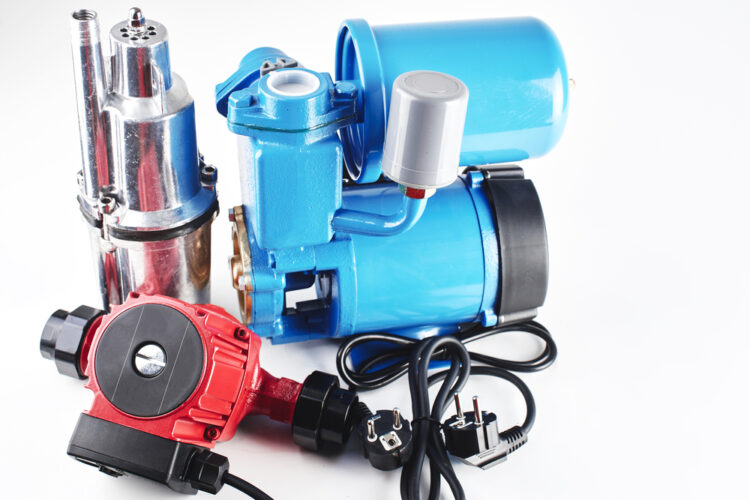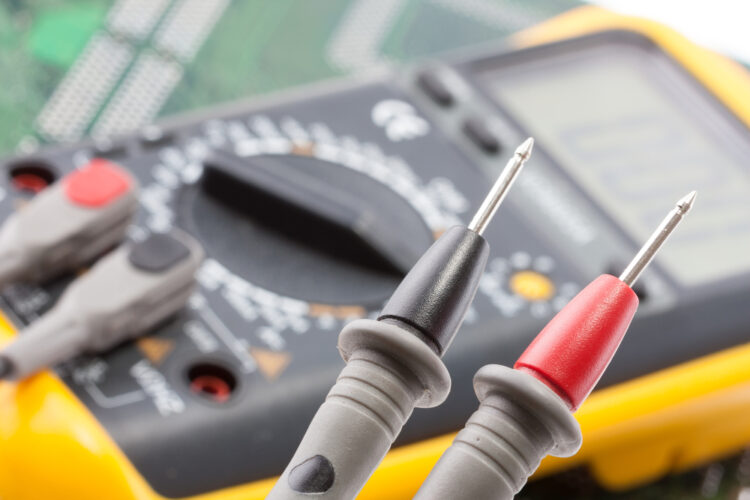It’s been a while since you installed a capacitor in your good pump.
Now you’re afraid it isn’t working correctly but you’re not so sure.
Knowing the signs of a bad capacitor would help here.
What are the bad well pump capacitor symptoms?
First of all, you might see the well pump not turning on. It might turn on but fail to continue running. You may also get a burning smell. Not only that, but you might also see the pump responding late. The voltmeter not showing any voltage is also a prominent symptom. Finally, a high electricity bill is another one.
This information is not enough for you to understand the issue. Take some time to read the entire discussion.
Sounds about right? Let’s not waste a second and jump into it!
What Causes Your Well Pump Capacitor To Go Bad
A failing start capacitor is commonly caused by overheating. Because capacitors aren’t built to handle the heat that comes with the constant operation, they are only meant to be in the circuit for a short time when the motor starts.
A start capacitor will overheat if left in the circuit for too long. And it eventually fails and goes bad. A capacitor can also go wrong if the central heating pump overruns.
There are other causes as well. Improper current or voltage traveling through the capacitor is bad because it can eventually damage the capacitor.
6 Common Symptoms of A Bad Well Pump Capacitor

You might have got the gist by now. But you don’t know the symptoms in detail. You might not be certain to identify the issue. Thus, the symptoms are discussed below-
Symptom 1: Well Pump Not Turning On
Your well pump might not be able to start at times due to a faulty capacitor. This is quite similar to when the AC doesn’t turn on because of a blown capacitor.
If you keep trying to turn on your well pump, it will worsen the situation because the capacitor might blow off. And your well pump motor would most likely burn out. The entire well pump can get damaged due to this.
Symptom 2: Well Pump Failing To Run
You might be able to turn the well pump successfully. It can still struggle to run and eventually stop. This happens when your well pump capacitor is faulty.
You need to remember one thing! Make sure not to keep your pump running if it constantly turns off because the capacitor would keep on blowing. This could make things even worse.
Symptom 3: Burning Smell When The Pump Runs
If you smell something burning when your well pump is running, it’s probably your capacitor. Yes, your capacitor burning is another obvious sign.
Capacitors can burn out but they won’t make any noise all the time. Sometimes it makes a soft pop sound which is an obvious sign.
Whenever you smell something burning inside your good pump, turn it off instantly. Because you definitely would not want to face any hazardous consequences.
Symptom 4: The Well Pump Works Late
Sometimes, the well pump takes too long to turn on. You might need to wait a few minutes for it to start working. If this happens, you know your capacitor has gone bad.
On top of that, your well pump might take longer to pump water inside the house. You might also experience the pump making rattling noises.
You would think of it as a well pump issue but it’s your capacitor. In this case, don’t delay resolving the issue because delaying would worsen the problem.
Symptom 5: Volt Meter Not Showing Any Voltage

Not all the symptoms of a faulty capacitor are apparent. You might want to inspect your well pump capacitor with a voltmeter at times because a bad capacitor leads to the voltmeter showing no voltage.
To assess this, all you need to do is take a voltmeter to the capacitor. If the voltmeter doesn’t show any voltage, the capacitor is gone!
That means your well pump capacitor is bad. This is one of the most reliable ways of recognizing if you have a faulty capacitor.
Not sure what type of voltmeter to use for this? We’ve got a list here for your convenience:
| Product 1 | |
| Product 2 |
These are the products you can easily trust for your work!
Symptom 6: High Electricity Bills
Your electricity bills could rise for no reason. It’s pretty natural to think it’s just for the month’s usage. But if this continues, it’s because of your faulty capacitor.
This is the most challenging sign to catch. And not recognizing the issue makes it worse because the electricity bills might increase gradually.
This symptom doesn’t necessarily mean the capacitor has wholly gone bad. Sometimes it means the capacitor is starting to go bad. You might be able to run your well pump with that defective capacitor for a while. But you don’t want high bills!
These are the most common signs of a well pump capacitor going bad. Be aware and look for these symptoms if your capacitor is going bad.
FAQs
Can my well pump start if it has a bad capacitor?
Powering your pump’s start winding is impossible without a working capacitor. And the pump won’t turn on. To inspect the control box, identify the breaker first. Then turn off the circuit breaker for your well pump. If the capacitor is leaking, it is simple to replace.
How to recognize if the well pump is running or not?
You’ll hear certain noises when a well pump is turned on. These would be the opening and closing clicks of the pressure switch. When there is no water running, though, you may hear frequent clicking. You have troubles outside the house in that instance. As a result, you’ll need to engage a professional.
What is the expense of replacing a well pump?
The water from the well is collected by a well pump. Then it pushes it upward into the rest of your home’s water system. As a result, if you’re digging a new well, you’ll need a pump to use it. A well pump replacement might cost anything from $850 to $2,250. So, you need to spend a lot of money on this one.